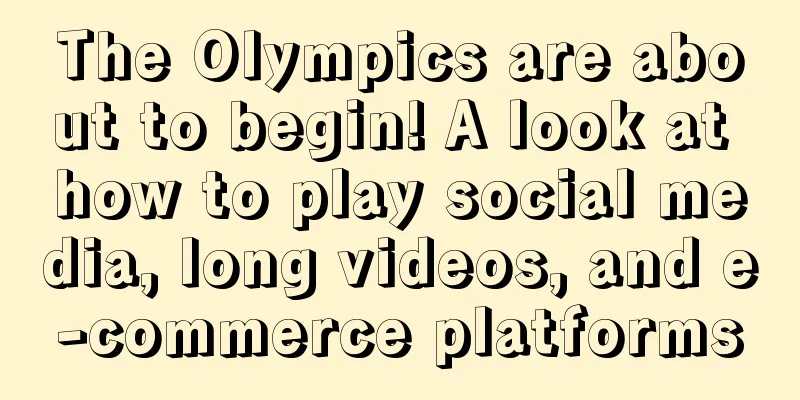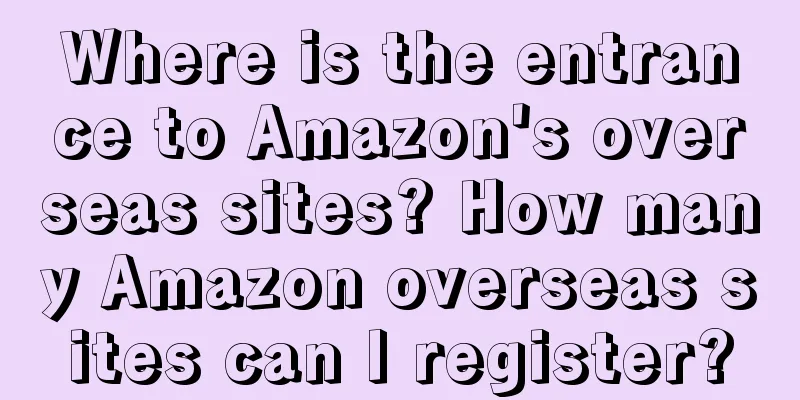Talking about brands from a story of a popular homestay in Sanya

To figure out whether or not a company should build a brand and when it should build a brand, the best way is to analyze it from the perspective of game theory. However, game theory is a very complicated topic. Let’s start with the story of a popular homestay. 1. Let’s start with a story about a popular homestay brand in SanyaI have a friend who worked as a brand marketing manager and cultural tourism business manager for a large ToB company. I usually call him "Brother Liang". In his spare time, he and several partners started a high-end homestay brand in Sanya - "ROY Ruoyi". Here are a few pictures to give you a feel: At the beginning of the creation, the overall brand planning was done, starting with the brand name and brand vision. As for the name, after in-depth research, it was decided to use a combination of English and Chinese brands, named "ROY若逸". "ROY" is the abbreviation of the word ROYAL, which means noble and excellent; "若逸" means freedom and comfort. The brand name is strongly related to the industry, and is concise enough and easy to remember. At the same time, a brand visual system was designed, with blue as the main color and white decoration style, highlighting the freshness, fashion, texture and high-end feeling, making the customers feel that "this is a homestay with brand, aesthetics and taste." When it came time to open the second and third stores, Brother Liang worked hard on operations and customer satisfaction to ensure that ROY B&B maintained high customer ratings on major platforms such as Meituan and Ctrip, allowing new customers to eliminate doubts and place orders with confidence during the search and selection process before checking in. They also came up with an idea, which is to invite photographers to take photos of the beautiful women and handsome men staying in the store, and give three photos for free. If more photos are needed, customers need to pay the photographer separately. On the one hand, they invite beautiful women and handsome men to visit the store to experience shooting, and publish the real stay experience on platforms such as Xiaohongshu, Dianping, and Ctrip. At the same time, more importantly, the hotel users are willing to take the initiative to publish and spontaneously promote, which is not only authentic, but also can form the effect of "customer fission referral" through the spread of WeChat Moments. By cooperating with photographers, we can avoid increasing operating costs, and good photos can inspire customers to share, which will gradually form a virtuous cycle of "high-end homestay positioning - high-quality customers check in - customers take photos and share - attract new customers to check in". The reason for this marketing idea is that high-end homestays with sea views + infinity pools are indeed easier to take photos, which can be regarded as the product advantage of ROY Homestay. How to spread this advantage is the key to marketing. When it opened five to six stores, ROY had stores in all the mainstream sea view areas in Sanya. At this time, it gradually increased its efforts in brand communication and development, started to carry out brand joint activities with major OTA platforms, and participated in authoritative selection activities hosted by major institutions and government departments, winning many industry awards. These medals are hung at the hotel's front desk, further strengthening customers' confidence in staying in the hotel: "Look, I made the right choice, this is an Internet celebrity homestay." After several years of hard work, ROY Ruoyi is now often fully booked, and the "Full House Today" poster has become the most common content in Liang Ge's circle of friends. Perhaps this is a way for the Internet celebrity homestay brand to "show off its wealth." 2. The underlying logic of whether to build a brand or not - game theoryWhy don't taxi drivers need to provide good service to customers? Because the probability of a taxi driver meeting the same customer next time is almost zero. No matter how good the driver is to you, you won't get these two taxis. In other words, this is a one-time game. Why do people feel that Didi drivers’ service is better than taxis? This is because Didi has customer ratings. Drivers with high ratings will get more orders on the Didi platform, while drivers with low ratings will get fewer and fewer orders. If the rating is too low, there will be no orders and they will be eliminated. In other words, the ratings given by customers on the Didi platform will affect the drivers’ business, turning a one-time game into a multiple-time game. Similarly, hotels and restaurants in tourist attractions in the 1990s were notorious for ripping off customers. The underlying reason behind this is that customers rarely go to the same attraction again, and they don’t expect you to make repeat purchases, so naturally they don’t care about your feelings and comments. This is a one-time game. Why do restaurants near your home often provide good service that exceeds your expectations? This is because this restaurant really needs your repeat purchases. If the people around the restaurant eat once and never go again, then this restaurant will not be far from closing down. Repeated purchases are obviously multiple games. Back to the story of ROY B&B, it’s the same. If ROY is just a small B&B in Sanya, it would not need to build a brand. Why build a brand? Because ROY plans to become a high-end B&B chain with internet celebrity status, which requires repeated purchases from customers and good word-of-mouth from old customers to increase the probability of new customers. Therefore, the brand design and planning were done from the beginning. After more and more stores were opened and gradually covered the mainstream attractions in Sanya, the brand was further developed. What is "game theory"? -- When the behaviors of multiple decision-making entities interact with each other, each entity makes a decision that is beneficial to itself based on the information it has and its own understanding of its own capabilities. Whether to build a brand or not is very clear with game theory analysis. If it is a single game, there is no need for a brand. If it is a multiple game, a brand and reputation are needed. Therefore, whether to build a brand or not is ultimately for business. From the story of ROY B&B, we can see three points: 1. We hope that customers will make repeat purchases. Sanya is different from tourist attractions. Many northerners will choose Sanya for winter vacations and company annual meetings. The probability of customers making repeat purchases at ROY B&B is very high. 2. The reputation of old customers has a great influence on the purchase decision of new customers. ROY's high score and good reputation on the online platform will affect the purchase decision of new users. Even old customers' sharing on WeChat can directly bring in new customers. 3. Large number of target customers. When ROY opened its first store, it was not so urgent to build its brand, because even if it spent money to build its reputation, it would be a waste of brand reputation if customers went to Sanya and found that there was no ROY in the scenic spot. This is like a beverage brand that advertises but customers cannot buy it. This is a waste of advertising. When the number of stores has covered the mainstream scenic spots in Sanya, brand promotion will be more valuable, that is, people who travel to Sanya are mostly ROY's target users. 3. FinallyFinally, let’s summarize. From the perspective of game theory, whether or not to build a brand and when to build a brand depends on business needs. We can draw a “brand necessity triangle”. Or in layman's terms, "Whether or not to build a brand depends on these three points": 1. Large number of target customers 2. Hope that customers will make repeat purchases 3. Word of mouth from old customers will influence new customers’ purchasing decisions |
Recommend
Activity operation|Isn’t it just writing an activity operation plan?
Editor's note: The activity operation plan is ...
Stress relief and squeezing are very popular, and the emotional value business is becoming popular
"Squeeze toys" are currently very popula...
What level of thinking ability is you at?
This article introduces the four levels of thinkin...
The fate of Xiao Yangge and Dong Yuhui
The transformation of the live streaming e-commerc...
Just ask on WeChat, and you will find that we can’t handle the free traffic!
This article mainly talks about the WeChat Ask fun...
What are the differences between cross-border e-commerce B2B and B2C? Which one is better?
Cross-border e-commerce actually has many operatin...
Kimi's first pot of gold came entirely from tips?
Generally speaking, there are only a few payment m...
How to use Xiaohongshu without violating regulations with a low budget? See these 3 business cases!
This article talks about Xiaohongshu's merchan...
How to add Amazon variations? What is the method?
When opening a store on Amazon, many people will b...
What are the restrictions for new eBay sellers? How many products can I list?
eBay is a relatively well-developed cross-border e...
Douyin's "Golden Pig" can't bring short dramas to the forefront
Clarify your goals, test and optimize, choose the ...
Crazy Xiao Yangge is gone, top internet celebrities and MCNs are competing for the short drama cake
This article deeply explores the current competiti...
What does it mean that withdrawals from Shopee official wallet are still being processed?
The Shopee platform is very popular among consumer...
How to prepare goods for cross-border e-commerce during the Spring Festival? Tips
Amazon merchants will basically have a holiday dur...
How long will it take for an Amazon account to be closed? How much can it be sold for?
On Amazon, if you have your own account, you can b...









